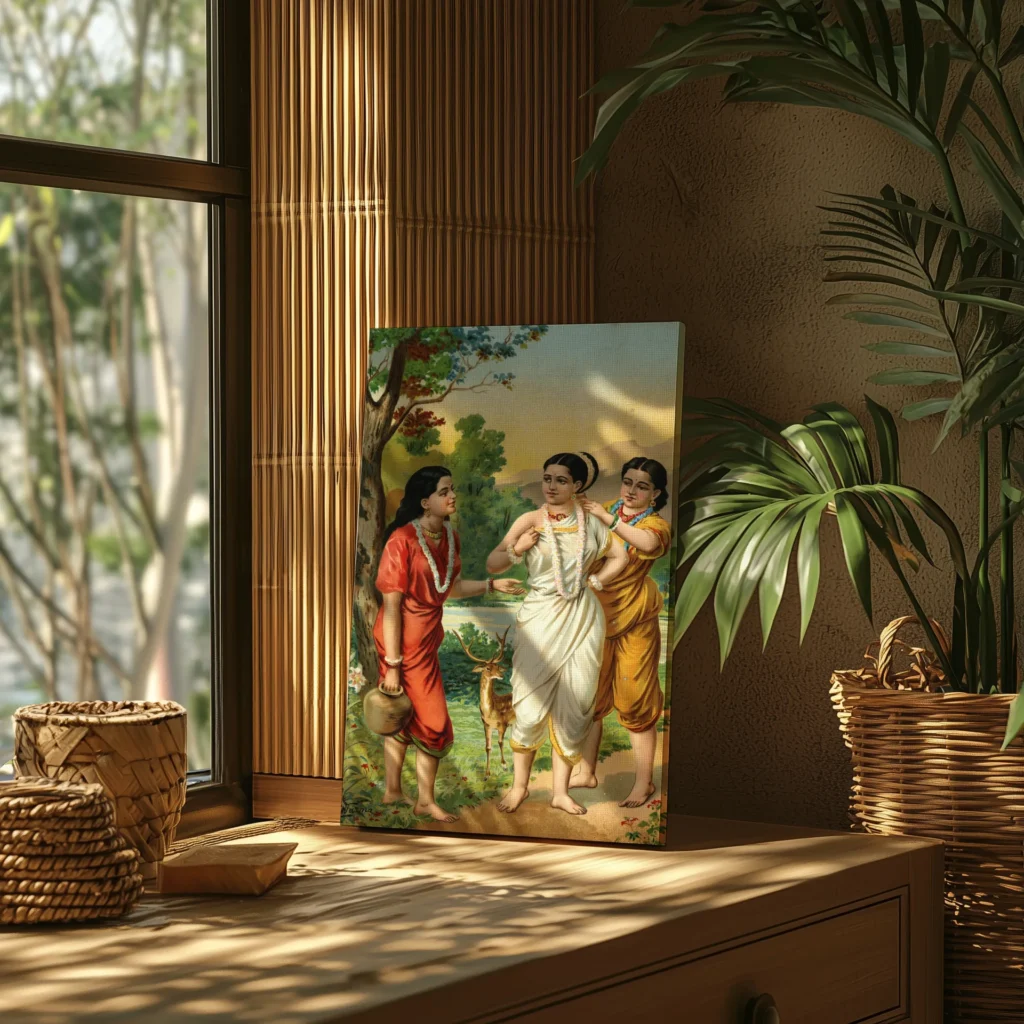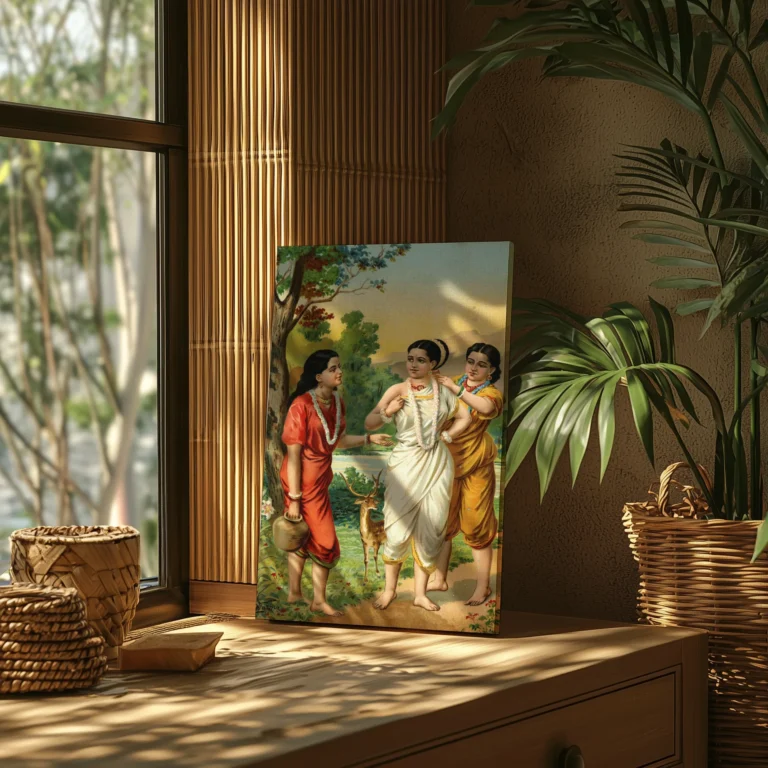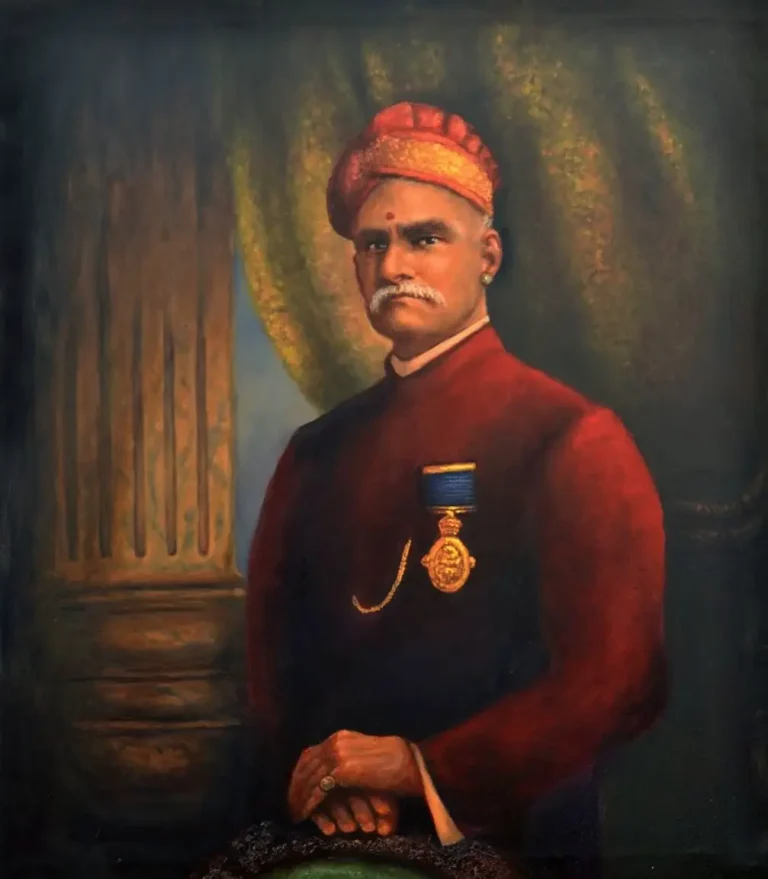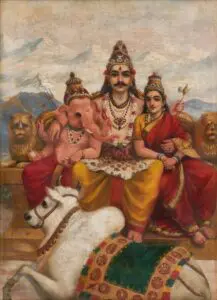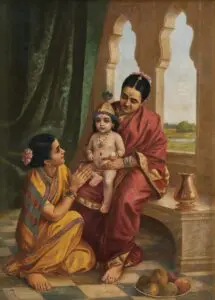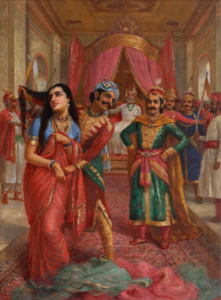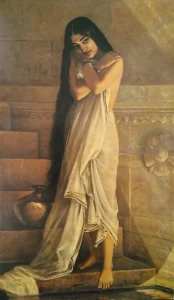Shakuntala And Sakhis
Shakuntala and Sakhis is a captivating artwork by Raja Ravi Varma that features the character of Shakuntala amidst a tranquil forest setting, accompanied by her close companions, Anusuya and Priyamvada. This piece not only highlights Varma's fascination with Indian mythology, particularly the Mahabharata, but also showcases his skill in using oleographic techniques to produce vibrant images that appeal to a wide audience. The serene atmosphere of the painting is a perfect reflection of Shakuntala's grace and beauty, making it a celebrated piece in Indian art.
Late 19th Century
About the Artwork
This artwork tells the story of Shakuntala, a legendary figure from the Mahabharata known for her beauty and strength. Raja Ravi Varma, renowned for his ability to blend Indian subjects with European artistic styles, chose to portray her in a peaceful, sylvan environment that emphasizes her connection to nature. The inclusion of her sakhis or friends adds depth to the scene, showcasing the importance of companionship and support in Shakuntala's life. Varma's approach to this subject not only celebrates the character but also revitalizes interest in Indian mythology during a period of cultural renaissance in India.
Subject
In this artwork, Shakuntala is depicted in a serene and natural setting, surrounded by her companions or sakhis, Anusuya and Priyamvada. The scene is set in a sylvan environment, which was a common theme in Ravi Varma's works, blending traditional Indian subjects with European artistic techniques.Medium and Technique
The artwork is an oleographic print, a technique that Ravi Varma popularized in India. Oleography involves creating multi-colored prints using a lithographic process, which allowed his works to be widely reproduced and distributed, making them more accessible to the general public.Did You Know
The character Shakuntala originates from the ancient Indian epic Mahabharata, specifically from the play Abhijñānaśākuntalam by Kalidasa, which has been influential in shaping Indian art and literature.
Raja Ravi Varma is credited with bringing Indian mythology and culture to the masses through his innovative use of chromolithography, making his works widely accessible and beloved by many.
The oleographic technique used by Varma allowed for vibrant color reproduction and enabled large-scale prints, significantly increasing his artworks’ popularity and reach during his lifetime.




